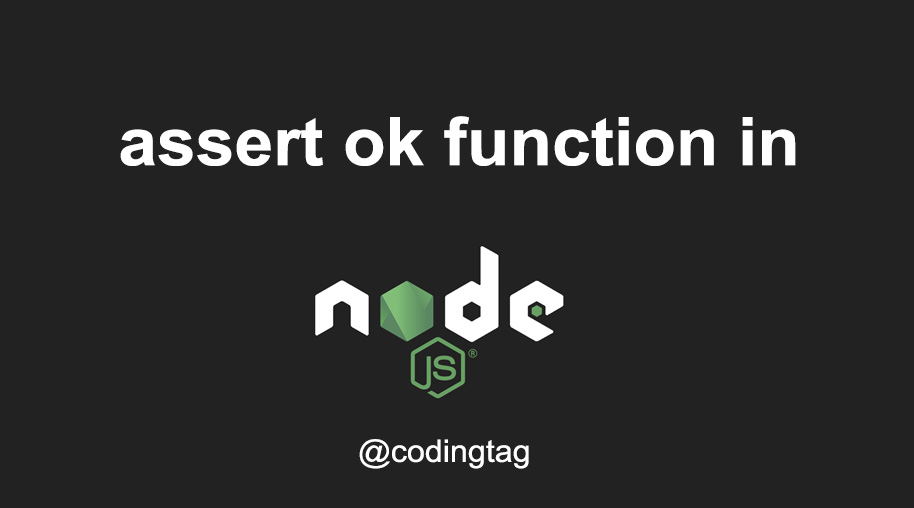path.normalize() Method in Node.js
0 881
In Node.js, working with file paths is a crucial task, especially when you need to ensure that paths are consistent across different operating systems. The What is the
The Syntax of
The syntax for using the How Does
When you call the Why Use
Here are a few reasons why you should use the
If you’re passionate about building a successful blogging website, check out this helpful guide at Coding Tag – How to Start a Successful Blog. It offers practical steps and expert tips to kickstart your blogging journey!
For dedicated UPSC exam preparation, we highly recommend visiting www.iasmania.com. It offers well-structured resources, current affairs, and subject-wise notes tailored specifically for aspirants. Start your journey today!
path.normalize() method in Node.js plays a vital role in normalizing file paths by resolving special characters like .. (parent directory) and . (current directory). In this blog, we will dive into how this method works and why it’s useful for your Node.js applications.
What is the path.normalize() Method?
The path.normalize() method is a built-in utility in Node.js that normalizes a file path by resolving any unnecessary or redundant path segments. This includes eliminating extraneous slashes and resolving ./ (current directory) and ../ (parent directory) components in the path. It's a great tool to ensure your paths are clean and platform-independent.
Syntax of path.normalize()
The syntax for using the path.normalize() method is straightforward:
path.normalize(path)path is the input file or directory path that you want to normalize. The method returns a new string with the normalized path.
How Does path.normalize() Work?
When you call the path.normalize() method, it processes the given path by resolving any ./ or ../ components. It eliminates redundant slashes and ensures the final path follows the standard format for the operating system you're working on (e.g., forward slashes for Unix-based systems and backslashes for Windows).
Let's look at a practical example:
const path = require('path');
const normalizedPath = path.normalize('/users/john/../john/documents/./file.txt');
console.log(normalizedPath); // Output: /users/john/documents/file.txtpath.normalize() resolves the ../ and ./ components to provide a clean and accurate file path.
Handling Redundant or Incorrect Slashes
One of the key features ofpath.normalize() is that it can handle paths with unnecessary slashes. For example, if you include multiple consecutive slashes, path.normalize() will clean them up:
const path = require('path');
const cleanedPath = path.normalize('/users//john//documents///file.txt');
console.log(cleanedPath); // Output: /users/john/documents/file.txtWhy Use path.normalize()?
Here are a few reasons why you should use the path.normalize() method in your Node.js applications:
- Consistency: It ensures that file paths are always in a consistent format, regardless of how they were inputted or the operating system you're working on.
- Cross-platform compatibility: It resolves path quirks that may differ across platforms, ensuring your code works seamlessly on both Unix and Windows systems.
- Path sanitization: It eliminates issues caused by redundant slashes,
./, and../components in paths, making the paths valid and easier to handle.
Example Use Cases
Consider a situation where you’re working with user-uploaded files in different directories. If the input paths may contain extra slashes or relative components, usingpath.normalize() ensures that you can handle them consistently and prevent potential errors caused by invalid paths.
Another example is when you're working with dynamic file paths that involve user input. Normalizing these paths can prevent malicious users from manipulating path segments like ../ to navigate outside the intended directories, which is a security risk.
Conclusion
Thepath.normalize() method in Node.js is a simple yet powerful tool for managing file paths in a platform-independent manner. It helps you clean up redundant slashes, resolve ./ and ../ components, and ensure consistent path formatting across different operating systems. By using path.normalize(), you can avoid many common path-related issues, making your Node.js applications more reliable and cross-platform compatible.
We hope this blog has given you a clear understanding of how to use the path.normalize() method in Node.js. Keep it in mind the next time you work with file paths, and make your Node.js applications even more efficient!If you’re passionate about building a successful blogging website, check out this helpful guide at Coding Tag – How to Start a Successful Blog. It offers practical steps and expert tips to kickstart your blogging journey!
For dedicated UPSC exam preparation, we highly recommend visiting www.iasmania.com. It offers well-structured resources, current affairs, and subject-wise notes tailored specifically for aspirants. Start your journey today!

Share:







Comments
Waiting for your comments